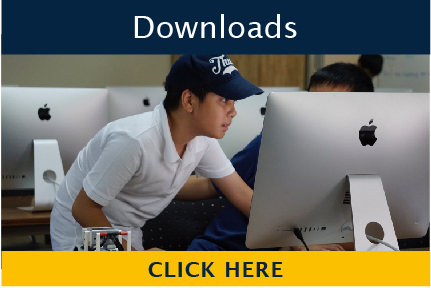Elementary School
ICS believes that what we are in our hearts is just as important as what we know in our heads. Honesty, kindness, responsibility, trust and respect are valued as much as reading, writing, and arithmetic. The development of positive character traits, based on Biblical principles, prepares students for a fulfilling, productive life.
Active and creative learning, combined with an environment of fairness, caring, and acceptance of each child, are the hallmarks of the elementary school. Whether it's recreating the Thanksgiving feast, gathering data for a scientific investigation, or just enjoying a good book, there's always something exciting going on.
Click here to visit the downloads page for handbooks and other relevent documents.
Doni Weimer
Elementary Principal
Elementary School Curriculum
LANGUAGE ARTS
Four-year-old kindergarten (K4) students learn in an English language environment of fiction and non-fiction stories, conversation, question-response and play that encourage students to increasingly use language to communicate.
Instruction in phonics and pre-reading and pre-writing skills prepares students for reading and writing.
K5 through Grade 5 students learn to read and write through precise direct instruction followed by students spending significant time actually reading and writing. Using literature as a guide, teachers reveal how readers think about and interact with text and how writers communicate effectively within the narrative, informational, and opinion genres. Students are given clear expectations with differentiated growth opportunities.
Teachers identify students’ word and phonics skills to differentiate instruction for all learners.
MATH
K4 students begin building a strong foundation of basic math concepts using manipulatives to understand counting, sorting, classifying, adding, and subtracting.
K5 through Grade 5 math moves from foundational to complex concepts. Students study mathematical operations, algebraic thinking, numbers, measurement, data, and geometry, applying their skills to solve increasingly complex problems.
SCIENCE
K4 students explore basic science concepts and learn about their world through stories, play, visuals, and conversation.
K5 through Grade 5, students develop skill in observing, comparing, sequencing, classifying, inferring, predicting, and drawing conclusions.
Elementary students study aspects of physical, life, and earth sciences through experimentation and informational mediums in order to understand and better care for the world and its resources.
SOCIAL STUDIES
K4 through Grade 5 look at the child’s place and responsibility in the home, the local community, and school. Students look at how a community functions and the various roles people perform.
Beginning in Grade 1, each grade studies selected countries’ geography, history, and culture so that students gain an understanding of how humans interact with others and the environment.
VALUES, CHARACTER DEVELOPMENT, BIBLE
K4 through Grade 5students learn about desirable values and character traits and about making wise choices through studying Bible stories, biblical principles, God’s character, and the life of Jesus.
Learning how to get along well with others in various settings equips students to effectively relate with others. The 4Bs: Be safe, Be respectful, Be responsible, and Be a problem solver permeate the elementary culture.
COMPUTER
Kindergarten through first grade integrate computer into the core subject areas, using it to enhance learning of foundational concepts. Second and third grade students start to learn touch typing skills and how to use Microsoft Word and Microsoft PowerPoint through a variety of assignments. Third grade students learn how to code simple tasks. Fourth grade students are challenged to code simple games and to create their own animation in addition to refining their touch typing speed and accuracy. Fifth grade students create songs to present in chapel along with increasing their typing speed and accuracy. They learn the constructive uses of technology and become aware of the negative impact misuse of technology can have on their lives.
ART
Kindergarten and elementary students learn basic elements of art such as line, shape, color, space, value, texture, form, balance, pattern, rhythm, and proportion. They look at masterpieces and techniques of renown artists. Then students create their own original artwork.
PHYSICAL EDUCATION
Physical education helps students grow in their personal fitness by teaching the whole student, which includes physical, mental, social, and spiritual aspects. The goal is that every student will develop an enjoyment of physical activity and a commitment to lifetime fitness.
MUSIC
The focus of kindergarten and elementary music is to enjoy music as an integral part of life. Students sing, move to music, and use rhythm instruments, learning various components of music and the sounds of musical instruments. Upper elementary students learn to play the recorder.
MEDIA CENTER
Kindergarten and elementary students come to the Media Center weekly. The librarian teaches students about genres and how to locate books. Students have time to browse, choosing books that interest them and are at their reading level, helping to foster their love of reading.
THAI
FOR THAI CITIZENS
Thai citizens study reading, speaking, listening, and writing Thai to prepare them to be fluent in their mother tongue. At each grade, expectations for fluency in Thai increase.
THAI
FOR INTERNATIONALS
Students who are citizens of other countries focus on conversational Thai and Thai culture so that they can converse in basic Thai and better understand their host country.
ENGLISH AS
SECOND LANGUAGE
(ESL)
Instruction from an ESL teacher in a small group for one period each day helps students increase English fluency so that they can function successfully in the mainstream classroom.





